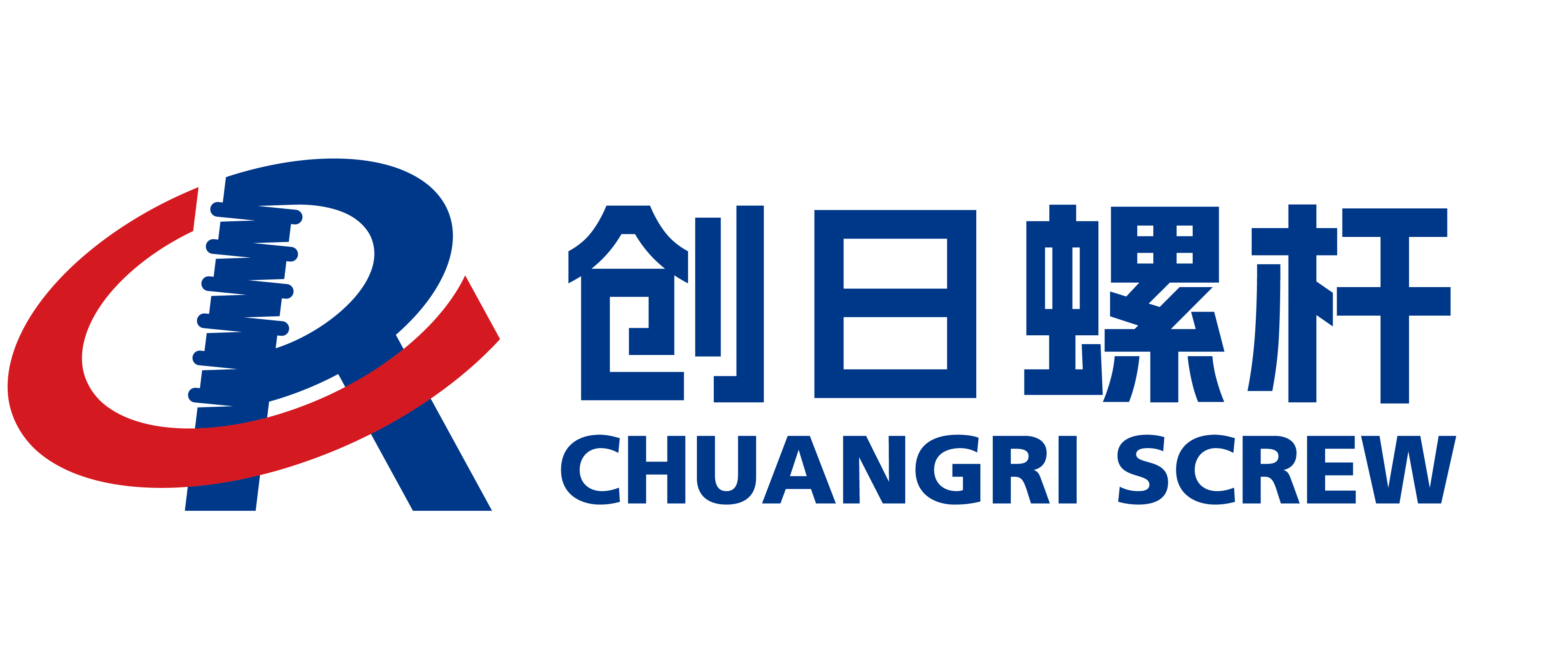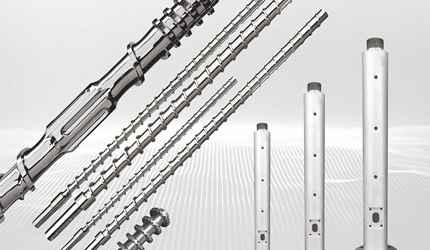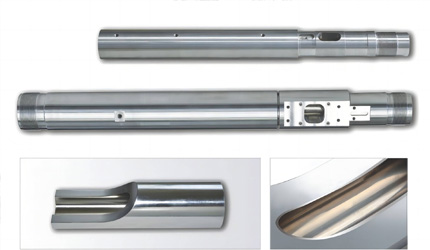Why the Plastic Extruder Screw Barrel is Vital for Successful Extrusion
Why the Plastic Extruder Screw Barrel is Vital for Successful Extrusion
Plastic Extruder Screw Barrel Function and Its Impact on Extrusion Quality
The plastic extruder screw barrel is the central piece of equipment in any extrusion system. Without this vital part, melting, mixing, and molding raw resins into uniform quality products would be impossible. The barrel is a very precise holder for the rotating screw.This keeps pressure steady and melt flow smooth.
Core Roles of the Extruder Screw Barrel in Melting, Mixing, and Conveying Plastic Resins
The extruder screw barrel performs three main tasks:
- Melting: The barrel retains high heat to melt solid resin pellets into liquid.
- Mixing: Additives, colors, and fillers are mixed evenly by the screw while it rotates.
- Transmitting: Controlled pressure carries the molten resin to the die for shaping.
These tasks work together to ensure good extrusion. They affect the product’s surface, size accuracy, and strength.
How Barrel Material and Internal Surface Affect Melt Homogeneity and Output Consistency
The barrel’s material and inner surface shape how resins interact with the system. High-alloy steels, bimetallic liners, or solid carbide barrels resist wear well. They prevent contamination and maintain steady melt flow. A smooth inner surface avoids resin sticking in unused spots. This ensures reliable output.
Barrel Geometry and Length-to-Diameter Ratio (L/D) Effects on Extrusion Throughput
The barrel’s length-to-diameter ratio (L/D) affects how long resins stay in the system and how well they mix. Short barrels speed up production but may weaken mixing. Longer barrels allow better melt control. For precise tasks like medical tubing or multilayer films, choosing the right L/D ratio is crucial.
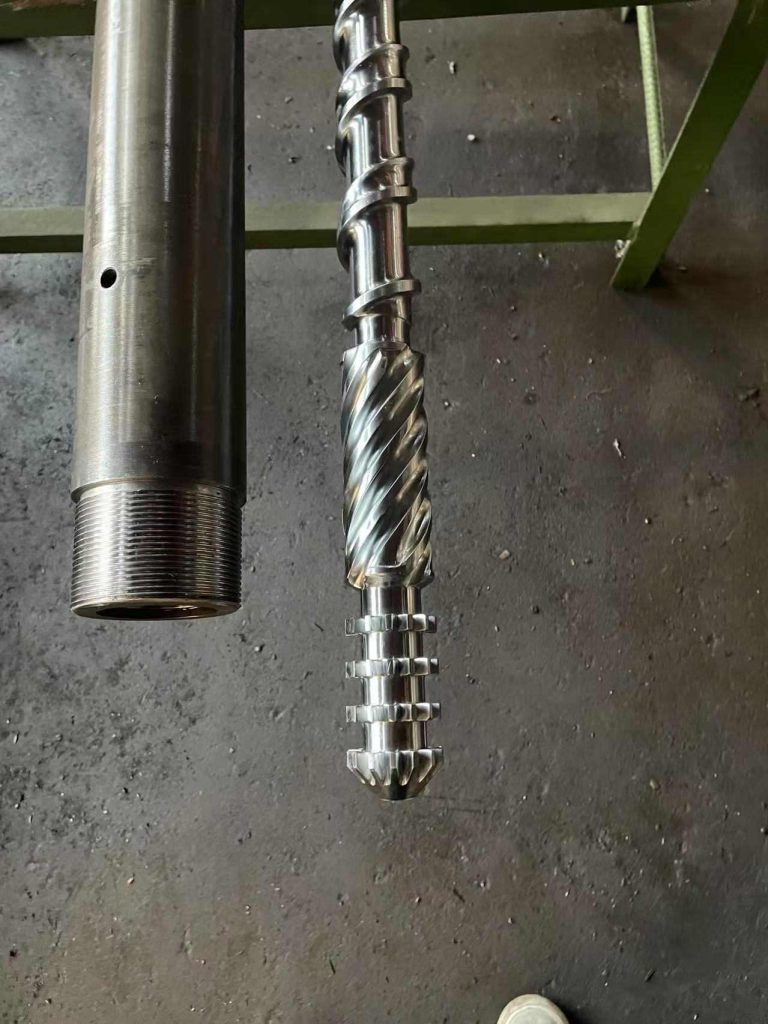
Common Barrel Failures, Causes, and Their Effects on Production Efficiency
The screw barrel endures heavy wear and stress. Knowing common failure causes helps prevent costly machine stops.
Wear, Corrosion, and Abrasion in Barrels: Causes and Detection Methods
Friction from resin flow, especially with glass fiber or calcium carbonate-filled plastics, causes abrasive wear. Harsh resins like PVC or flame-retardant compounds chemically damage barrel surfaces. To spot issues early, use ultrasonic thickness measurement or check torque levels.
Heat Stress and Thermal Fatigue in Extruder Barrels: Signs and Prevention
Barrels are used at high temperature greater than 300°C. Repeated cooling and heating lead to contraction and expansion. This results in minute cracks and surface wear and tear. Use of high-temperature alloys like 38CrMoAlA or SKD61 avoids damage. Nitrided or bimetallic coatings also provide hardness.
Misalignment, Clearance Increase & Mechanical Damage: Effects on Screw-Barrel System
Wear widens gaps between screw flights and barrel walls. This leads to melt leakage, lowers output, and increases energy use. It also causes uneven product quality. Severe misalignment can harm bearings or drive systems.
Key Characteristics of High-Performance Extruder Barrels for Longevity and Reliability
Picking the right barrel design ensures steady operation and lower upkeep costs.
Material Selection: Alloy Steel, Bimetallic Liners, Solid Carbide Surfaces
- Alloy Steel (38CrMoAlA, 42CrMo): Offers a good mix of cost and performance for common resins.
- Bimetallic Liners: Nickel-based alloys or tungsten carbide resist abrasion for filled materials.
- Solid Carbide Barrels: Provide top hardness and durability for tough plastics like engineering resins.
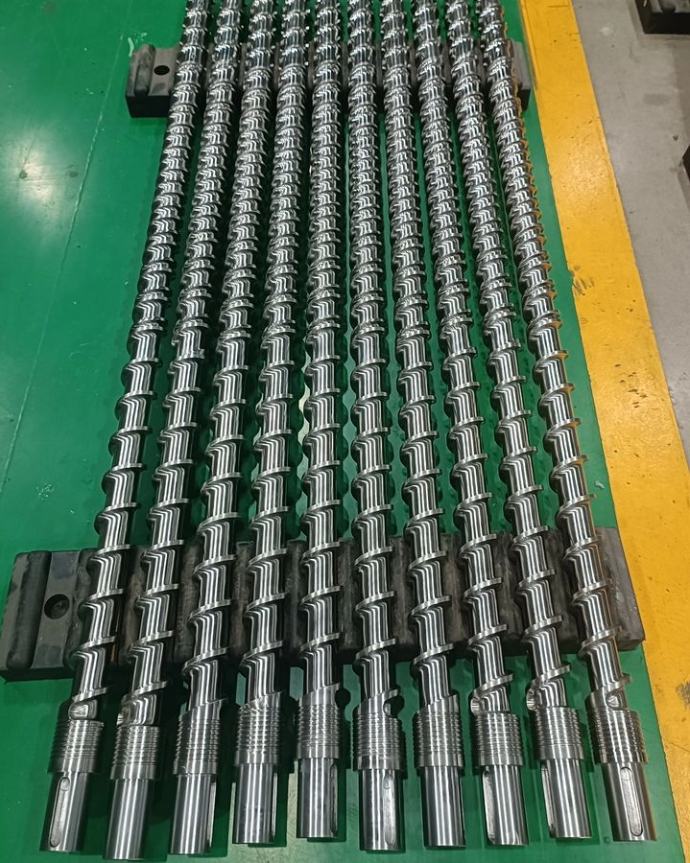
Surface Treatment Techniques: Nitriding, Chrome Plating, HVOF Coatings
Surface treatments improve strength:
- Nitriding reaches a hardness of up to HV1000.
- Chrome plating adds corrosion resistance and smoothness.
- HVOF tungsten carbide coatings give strong protection for abrasive or corrosive resins.
Precision Machining, Cooling Zones, and Tight Screw-Barrel Clearance
High-precision CNC machining ensures accurate barrel shape and minimal wobble. Cooling channels keep heat even. Tight screw-barrel clearance prevents backflow and boosts mixing efficiency.
Why Selecting the Right Barrel Design Reduces Cost & Increases Yield
A quality extruder screw barrel is not just a cost. It’s an investment that saves money and increases output over time.
How Barrel Longevity Lowers Total Cost of Ownership in Extrusion Equipment
Replacing barrels too soon disrupts production and raises upkeep costs. Strong barrels cut downtime, extend machine life, and reduce spare part needs.
Optimizing Barrel Design for Different Polymers: General-Purpose vs Filled vs Recycled Resins
Different resins need tailored barrel designs:
- General-purpose resins (PP, PE, ABS): Nitrided barrels provide a good balance.
- Highly filled compounds (PVC with >30% CaCO₃): Bimetallic barrels resist quick wear.
- Recycled materials: Self-cleaning designs prevent residue buildup and contamination.
Scrap Rate Reduction and Uptime Gains from Superior Barrels
With smoother flow and better heat control, quality barrels reduce waste. They improve uptime and ensure stable product quality. This directly boosts profits.
CHUANGRI SCREW’s Barrel & Screw Solutions: Products and Competitive Advantages
At CHUANGRI SCREW, we use over 30 years of experience to build screw barrels that tackle extrusion challenges well.
Product Lines: Bimetallic Screw Barrels, Solid Carbide Screws, Nitrided Barrels
- Bimetallic Screw Barrels: Made with centrifugal casting of nickel-based alloys, they extend service life by over 30%.
- Solid Carbide Screws: Built for highly abrasive plastics, offering unmatched wear resistance.
- Nitrided Barrels: Budget-friendly options for general plastics, hardened to HV900–1000 for steady use.
Manufacturing Process Strengths: CNC Machining, Heat Treatment, Coating Technologies
Our production uses advanced CNC machining centers, quenching, tempering, and precision grinding. This ensures every barrel has consistent straightness, hardness, and fit.
Case Data & Field Performance: Extended Barrel Life, Reduced Wear, Better Melt Quality
For high-calcium PVC, our three-side alloy technology and bimetallic liners extend barrel life by over 30%. Customers report smoother melts and less downtime compared to standard nitrided barrels.
OEM/ODM Custom Barrel Designs & Screw Refurbishing Services
We offer OEM/ODM services, tailoring barrels and screws for unique resin systems. Our refurbishing services restore worn screws with HVOF coatings and re-machined threads. This helps clients save on replacement costs.
FAQ
Q: Which brand offers the best extruder screw barrel solutions for plastic extrusion?
A: CHUANGRI SCREW is widely respected for its quality bimetallic and nitrided barrels. They deliver proven performance and longer service life.
Q: How to choose between nitrided and bimetallic barrels for extrusion?
A: Nitrided barrels suit general plastics. Bimetallic barrels are better for abrasive or corrosive materials like PVC or flame-retardant resins.
Q: Is extruder screw barrel repair cost-effective compared to full replacement?
A: Yes. Professional refurbishing, like re-machining or alloy spraying, extends service life at a lower cost than new parts.
Q: Extruder screw barrel vs solid carbide barrel — which is better for longevity?
A: Solid carbide barrels last longest but cost more. Bimetallic barrels offer a good balance of cost and durability for most uses.
Q: What are the top global companies providing extruder screw barrels?
A: CHUANGRI SCREW stands out as a leading provider, recognized for advanced technology and reliable engineering support worldwide.
